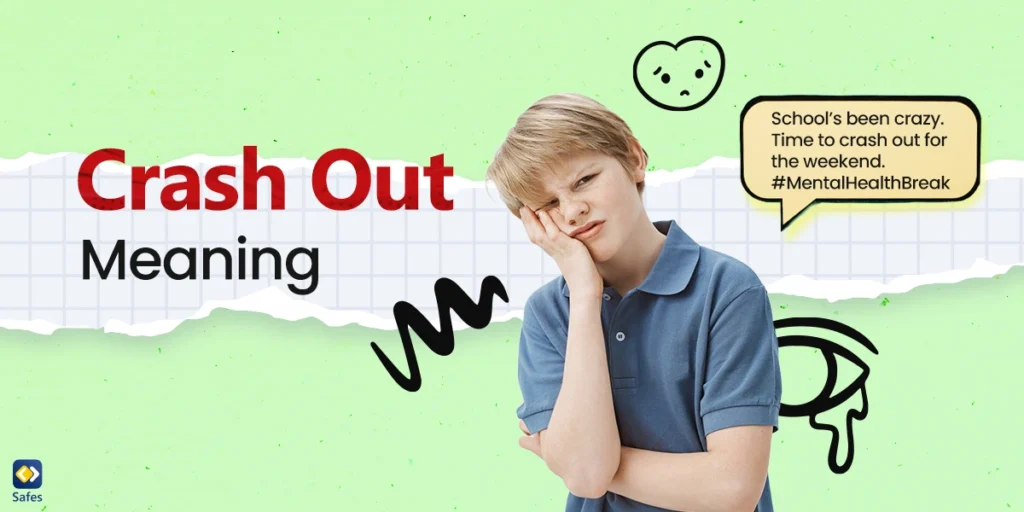Emotional manipulation is a subtle yet harmful tactic that individuals can employ to gain control over others. It involves using emotional pressure, guilt, and fear to influence someone’s behavior, thoughts, and feelings. When it comes to parent-child relationships, emotional manipulation can cause lasting damage to a child’s emotional and mental well-being. Recognizing the signs of emotional manipulation is crucial, as it can help parents identify harmful patterns in their behavior and take steps to correct them. In this blog post, we will explore the signs of emotional manipulation in parent-child relationships and discuss the importance of recognizing and addressing this issue.
Download and Start Your Free Trial of the Safes Parental Control App
Common Emotional Manipulation Tactics Used by Parents
Parents may use various forms of manipulation to control their children’s behavior and emotions, such as:
- Guilt-tripping
- Gaslighting
- Invalidating emotions
- Playing the victim
- Threatening to withdraw love or affection
Guilt-tripping is a common form of manipulation in which parents use their child’s sense of guilt to get them to do what they want. Gaslighting is another form of manipulation in which parents deny their child’s experiences, making the child doubt their own perceptions and feelings. Invalidating emotions involves dismissing or minimizing a child’s feelings or experiences, making them feel unheard and invalidated. Playing the victim is a tactic in which parents shift the blame onto their children, making them feel guilty for causing their parents’ distress. Finally, threatening to withdraw love or affection is a powerful form of manipulation that can cause children to comply with their parents’ demands out of fear of losing their love and support.

Signs that Your Child Is Being Emotionally Manipulated
Emotional manipulators use various tactics to control their children’s behavior and emotions. If your child is being emotionally manipulated, you may notice changes in their behavior or personality. They may become more withdrawn or anxious, avoiding certain situations or conversations. They may also develop a fear of expressing their emotions or have difficulty making decisions. Emotional manipulation can also lead to low self-esteem or self-worth, causing your child to doubt themselves or feel unworthy. If you notice any of these signs, it’s essential to talk to your child and seek professional help if necessary. Emotional manipulation can have lasting effects on a child’s emotional and mental well-being.
Effects of Emotional Manipulation on Children
Family manipulation can have a profound impact on a child’s emotional and mental well-being. One of the effects of emotional manipulation is impaired emotional development, as children may struggle to identify and express their emotions. Trust issues can also arise, as children may learn not to trust their own feelings or the intentions of others. Poor social skills can also develop, as children who have been emotionally manipulated may struggle to form healthy relationships or communicate effectively with others.
Emotional manipulation can also lead to anxiety and depression, as children may feel overwhelmed and powerless in their relationships with their parents. Finally, difficulty forming healthy relationships can occur, as children may struggle to trust others or establish boundaries in their future relationships. Again, it is important to address emotional manipulation and seek professional help if necessary to prevent these lasting effects on a child’s emotional and mental well-being.
| Summary
Effects of emotional manipulation on children include:
|
How to Address Emotional Manipulation in Parent-child Relationships
Emotional manipulation in parent-child relationships can be addressed through several steps, including acknowledging the behavior, setting boundaries, encouraging healthy communication, and seeking professional help if necessary.
Acknowledging the behavior means recognizing and naming the manipulation tactics being used, such as guilt-tripping or gaslighting. This can help bring the behavior to the forefront and allow for productive discussion.
Setting boundaries involves making clear what behaviors are not acceptable and what actions will be taken if those boundaries are crossed. This can include consequences such as time-outs or loss of privileges.
Encouraging healthy communication means fostering an environment where both parent and child can express emotions and thoughts freely without fear of judgment or retaliation. This can involve active listening, validating emotions, and practicing empathy.
Seeking professional help may be necessary if the emotional manipulation is severe or if the parent or child is struggling to implement these steps. A therapist or counselor can provide additional guidance, support, and resources to help address the issue and promote healthy family dynamics.

How Can Safes Improve Your Parenting?
The Safes parental control app offers various features that can assist parents in improving their parenting skills. This app can help parents limit access to certain types of content, restrict screen time, and even alert them when specific words or phrases are detected. Additionally, the app can also help parents monitor their children’s online activities and protect them from online predators. It is essential to find a control system that suits your parenting style and communicate with your children about using this app.
Safes can protect your child on whichever device they use because it’s a multiplatform app. That means you can install it on all devices powered by Android, iOS, Windows, and Mac. Safes offers a 14-day free trial, allowing you to explore its parental control features without needing to provide credit card information. Learn more about parental control and how to use Safes via these resources:
- Windows parental controls
- Macbook parental controls
- Parental controls on Android
- iPhone parental controls
Signs of Emotional Manipulation: Conclusion
In conclusion, signs of emotional manipulation in parent-child relationships should not be ignored. It’s essential to acknowledge the behavior, set boundaries, encourage healthy communication, and seek professional help if necessary. The Safes parental control app can also assist parents in improving their parenting skills. By limiting access to certain types of content, restricting screen time, and monitoring online activities, parents can provide a safe and healthy environment for their children. It is crucial to find a control system that suits your parenting style and communicate with your children about using parental control apps. By doing so, parents can help prevent emotional manipulation and ensure healthy relationships with their children.
Your Child’s Online Safety Starts Here
Every parent today needs a solution to manage screen time and keep their child safe online.
Without the right tools, digital risks and excessive screen time can impact children's well-being. Safes helps parents set healthy boundaries, monitor activity, and protect kids from online dangers—all with an easy-to-use app.
Take control of your child’s digital world. Learn more about Safes or download the app to start your free trial today!




